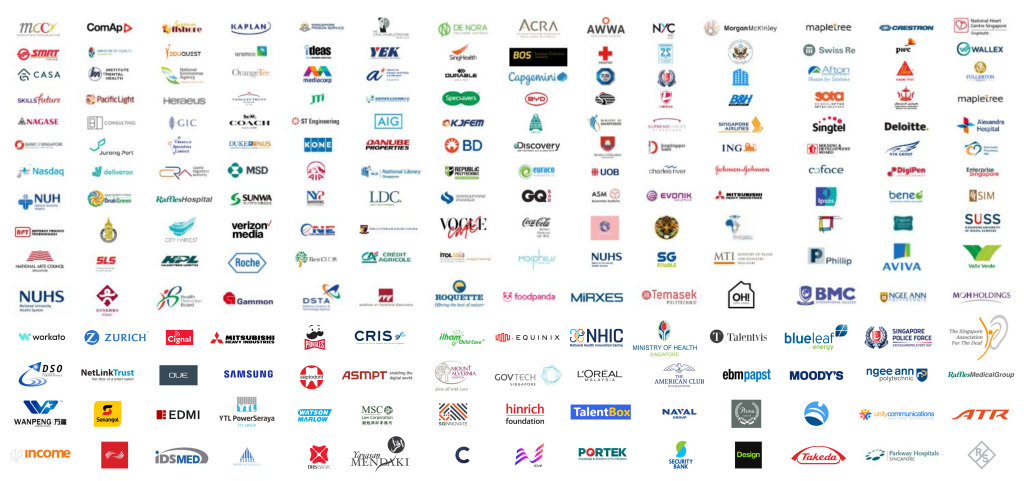Leadership in Crisis Management Training Course in Botswana
Our Leadership Courses in Botswana is also available in Gaborone (the capital city), Francistown, Molepolole, Serowe, Maun, Kanye, Mahalapye, Lobatse, Mochudi, Palapye, Selibe-Phikwe, Ramotswa, Thamaga, Tonota, Letlhakane, Orapa, Ghanzi, Shakawe, Tlokweng, Jwaneng, Kasane, Ramotswa, Lobatse, Orapa, Sowa, Mogoditshane, Tlokweng, Palapye, Mochudi, Tshabong, Kasane, Maun, Ghanzi, Shakawe, Jwaneng.
In the face of adversity, true leaders emerge, equipped with the knowledge and skills to navigate through the storm. The “Leadership in Crisis Management Training Course in Botswana” stands as a beacon of preparedness in the dynamic landscape of crisis response. Designed to empower leaders with the foresight and resilience needed to steer their organisations through turbulent times, this course is more than just a training programme; it’s a lifeline for those tasked with guiding their teams through uncertainty.
Botswana’s diverse environment presents a myriad of challenges, from environmental disasters to economic downturns and social unrest. Within this context, the “Leadership in Crisis Management Training Course in Botswana” provides a tailored approach to crisis preparedness and response, recognising the unique needs and complexities of organisations operating in Botswana. By delving into case studies, simulations, and real-world examples, participants gain practical insights that can be immediately applied to their own organisations.
Led by seasoned experts in crisis management and leadership, this course offers a comprehensive curriculum covering every aspect of crisis response. From developing robust crisis communication strategies to implementing effective decision-making frameworks under pressure, participants emerge equipped with the tools needed to lead with confidence in the face of adversity. Through interactive workshops, discussions, and collaborative exercises, participants not only deepen their understanding of crisis management principles but also build a supportive network of peers facing similar challenges.
By enrolling in the “Leadership in Crisis Management Training Course in Botswana,” leaders commit to not only safeguarding their organisations but also to protecting the well-being of their employees, stakeholders, and communities. Through proactive crisis planning, effective communication, and decisive action, participants learn to navigate crises with compassion, integrity, and resilience. Join us on this transformative journey and become a beacon of strength and stability in times of uncertainty through the “Leadership in Crisis Management Training Course in Botswana.”
Who Should Attend this Leadership in Crisis Management Training Course in Botswana
In today’s unpredictable world, effective crisis management is essential for the survival and success of any organisation. The “Leadership in Crisis Management Training Course in Botswana” offers a comprehensive programme designed to equip leaders with the skills and strategies needed to navigate crises confidently. Set against the backdrop of Botswana’s unique challenges and opportunities, this course provides a tailored approach to crisis preparedness and response, ensuring participants are well-equipped to lead their organisations through tumultuous times.
This course is ideal for leaders and decision-makers across various sectors who are responsible for guiding their organisations through crises. From CEOs and executive directors to senior managers and team leaders, anyone with a stake in organisational resilience and continuity will benefit from the insights and practical tools offered by the “Leadership in Crisis Management Training Course in Botswana.”
Join us and become a part of a community dedicated to strengthening crisis leadership capabilities and safeguarding organisational stability through the “Leadership in Crisis Management Training Course in Botswana.”
- Executives
- Team Leaders
- Entrepreneurs
- Educators
- Recent Graduates
Course Duration for Leadership in Crisis Management Training Course in Botswana
The “Leadership in Crisis Management Training Course in Botswana” offers flexible training durations to accommodate varying schedules and needs. Participants can choose from an intensive 3 full-day programme, providing in-depth exploration of crisis management principles tailored for Botswana’s context. Alternatively, for those with time constraints, options include a comprehensive 1-day workshop, a focused half-day session, or concise 90-minute and 60-minute overviews within the “Leadership in Crisis Management Training Course in Botswana.”
- 2 Full Days
- 9 a.m to 5 p.m
Course Benefits of Leadership in Crisis Management Training Course in Botswana
The “Leadership in Crisis Management Training Course in Botswana” equips participants with essential skills and strategies to effectively navigate and mitigate crises, ensuring organisational resilience and continuity.
- Enhanced crisis preparedness and response capabilities
- Improved decision-making under pressure
- Effective crisis communication skills
- Strengthened organisational resilience
- Enhanced leadership in times of adversity
- Reduced impact of crises on operations and stakeholders
- Greater confidence in handling challenging situations
- Improved team coordination and collaboration during crises
- Enhanced reputation management strategies
- Increased ability to learn from past crises and implement preventive measures
Course Objectives for Leadership in Crisis Management Training Course in Botswana
The “Leadership in Crisis Management Training Course in Botswana” aims to equip participants with the knowledge and skills necessary to effectively lead their organisations through crises, ensuring resilience and continuity in the face of adversity. Throughout the course, participants will develop strategies for proactive crisis preparedness, timely response, and effective communication tailored to the unique challenges of crisis management in Botswana.
- Develop proactive crisis management plans tailored to Botswana’s context.
- Implement effective communication strategies to keep stakeholders informed during crises.
- Enhance decision-making skills under pressure to facilitate timely and effective responses.
- Foster a culture of resilience within the organisation to withstand crises.
- Strengthen leadership capabilities to inspire confidence and stability during turbulent times.
- Identify and mitigate potential risks and vulnerabilities within the organisation.
- Coordinate and collaborate with internal and external stakeholders during crises.
- Implement post-crisis evaluation processes to learn from past experiences and improve future responses.
- Integrate crisis management practices into overall organisational strategy and operations.
- Foster trust and credibility with stakeholders through transparent and empathetic crisis communication.
- Develop contingency plans to minimise the impact of crises on operations and stakeholders.
- Provide support and guidance to employees and teams to navigate challenges and uncertainties during crises.
Course Content for Leadership in Crisis Management Training Course in Botswana
The “Leadership in Crisis Management Training Course in Botswana” offers comprehensive content designed to equip participants with the skills and knowledge necessary to effectively lead their organisations through crises.
- Develop proactive crisis management plans tailored to Botswana’s context.
- Identifying potential crisis scenarios specific to Botswana’s environment and industries.
- Conducting risk assessments to evaluate vulnerabilities and develop mitigation strategies.
- Creating crisis response protocols and procedures aligned with Botswana’s regulatory framework.
- Implement effective communication strategies to keep stakeholders informed during crises.
- Establishing clear lines of communication with internal and external stakeholders.
- Utilising various communication channels, including traditional media and digital platforms.
- Crafting timely and transparent messages to address stakeholder concerns and provide updates.
- Enhance decision-making skills under pressure to facilitate timely and effective responses.
- Simulating crisis scenarios to practice making decisions in high-pressure situations.
- Utilising decision-making frameworks and tools to evaluate options and assess risks.
- Developing agility and adaptability to respond swiftly to evolving crisis situations.
- Foster a culture of resilience within the organisation to withstand crises.
- Instilling a sense of responsibility and ownership for crisis preparedness among employees.
- Providing training and resources to build resilience and coping mechanisms.
- Encouraging open communication and collaboration to foster a supportive environment.
- Strengthen leadership capabilities to inspire confidence and stability during turbulent times.
- Leading by example and demonstrating calmness and confidence in the face of adversity.
- Empowering and motivating teams to remain focused and resilient during crises.
- Adapting leadership styles to meet the needs of the organisation and situation.
- Identify and mitigate potential risks and vulnerabilities within the organisation.
- Conducting thorough risk assessments to identify potential threats to the organisation.
- Implementing risk mitigation strategies to address identified vulnerabilities.
- Establishing monitoring mechanisms to track and address emerging risks proactively.
- Coordinate and collaborate with internal and external stakeholders during crises.
- Establishing crisis management teams and assigning roles and responsibilities.
- Building partnerships with external agencies and organisations for coordinated response efforts.
- Facilitating regular communication and coordination meetings to ensure alignment and collaboration.
- Implement post-crisis evaluation processes to learn from past experiences and improve future responses.
- Conducting debrief sessions to gather feedback and identify areas for improvement.
- Documenting lessons learned and best practices for future reference.
- Updating crisis management plans and procedures based on post-crisis evaluations.
- Integrate crisis management practices into overall organisational strategy and operations.
- Aligning crisis management objectives with the organisation’s mission and goals.
- Embedding crisis preparedness into day-to-day operations and decision-making processes.
- Ensuring that crisis management considerations are integrated into strategic planning processes.
- Foster trust and credibility with stakeholders through transparent and empathetic crisis communication.
- Building relationships with stakeholders based on transparency, honesty, and empathy.
- Addressing stakeholder concerns and expectations proactively and transparently.
- Demonstrating genuine empathy and understanding towards the impact of the crisis on stakeholders.
- Develop contingency plans to minimise the impact of crises on operations and stakeholders.
- Developing alternative operating procedures to maintain critical functions during crises.
- Establishing backup systems and redundancies to ensure continuity of operations.
- Identifying alternative suppliers and resources to mitigate disruptions to supply chains.
- Provide support and guidance to employees and teams to navigate challenges and uncertainties during crises.
- Offering psychological support and counselling services to employees affected by the crisis.
- Providing clear directives and guidance to teams to navigate uncertain situations.
- Facilitating training and development opportunities to build resilience and coping skills among employees.
Upcoming Course and Course Brochure Download for Leadership in Crisis Management Training Course in Botswana
Stay informed about the latest updates and upcoming opportunities for the “Leadership in Crisis Management Training Course in Botswana” by subscribing to our newsletter. To receive detailed information about the course content, schedule, and enrollment process, request a brochure today. Ensure you don’t miss any important updates regarding the “Leadership in Crisis Management Training Course in Botswana” by signing up for our newsletter and requesting a brochure.

